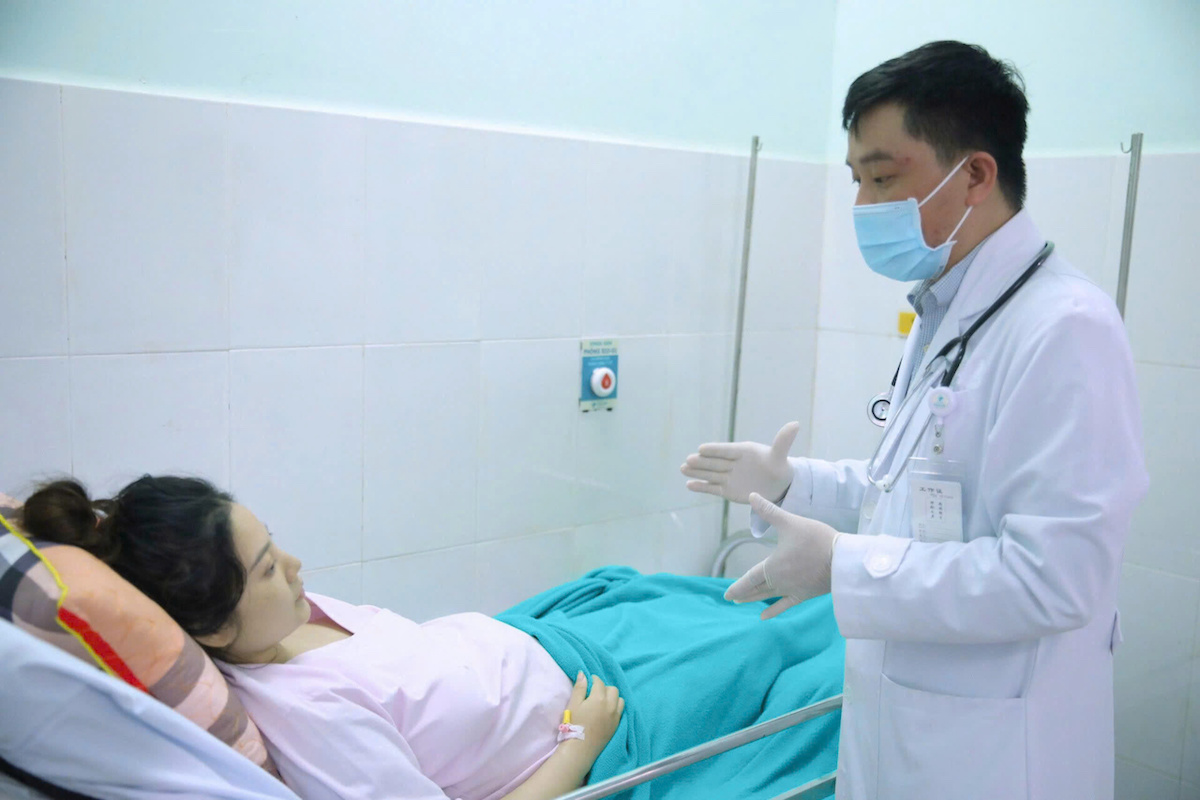On 15/7, Hoan My Binh Phuoc Hospital (Dong Nai) reported that a pregnant woman suffered from placenta percreta, a central placenta previa. This is one of the most dangerous obstetric complications, threatening the lives of both mother and baby. The patient was admitted to the hospital with massive vaginal bleeding, unmeasurable blood pressure, pale skin, cold extremities, and a hard uterus.
Doctors from the obstetrics, anesthesiology and resuscitation, general surgery, emergency, and pediatric departments collaborated to perform an emergency cesarean section, hysterectomy to stop the bleeding, and bladder repair. The patient received 6 units of packed red blood cells and 6 units of fresh frozen plasma to compensate for the severe blood loss and blood clotting disorder caused by the hemorrhage. A baby girl weighing 2.6 kg was safely delivered.
 |
The mother receives post-operative care. Photo: Thai Ha |
The mother receives post-operative care. Photo: Thai Ha
This was the woman's third pregnancy; her previous two deliveries were also by cesarean section. During this pregnancy, doctors diagnosed her with central placenta previa and placenta percreta and advised an early cesarean delivery for safety. Wanting to keep the baby in utero for a few more weeks, the patient opted for close monitoring and scheduled a cesarean section in TP HCM, but unexpectedly experienced massive bleeding.
Dr. Hoang Van Thieu of Hoan My Binh Phuoc Hospital explained that placenta percreta is a very dangerous complication, easily leading to massive blood loss and potentially death if not treated promptly. Therefore, pregnant women with a history of multiple cesarean sections, or diagnosed with placenta previa or placenta percreta, should adhere to medical advice, have regular check-ups, and not postpone a scheduled cesarean section. It is crucial to choose a hospital with intensive care facilities to ensure maximum safety for both mother and baby in complex obstetric situations.
Phuoc Tuan












